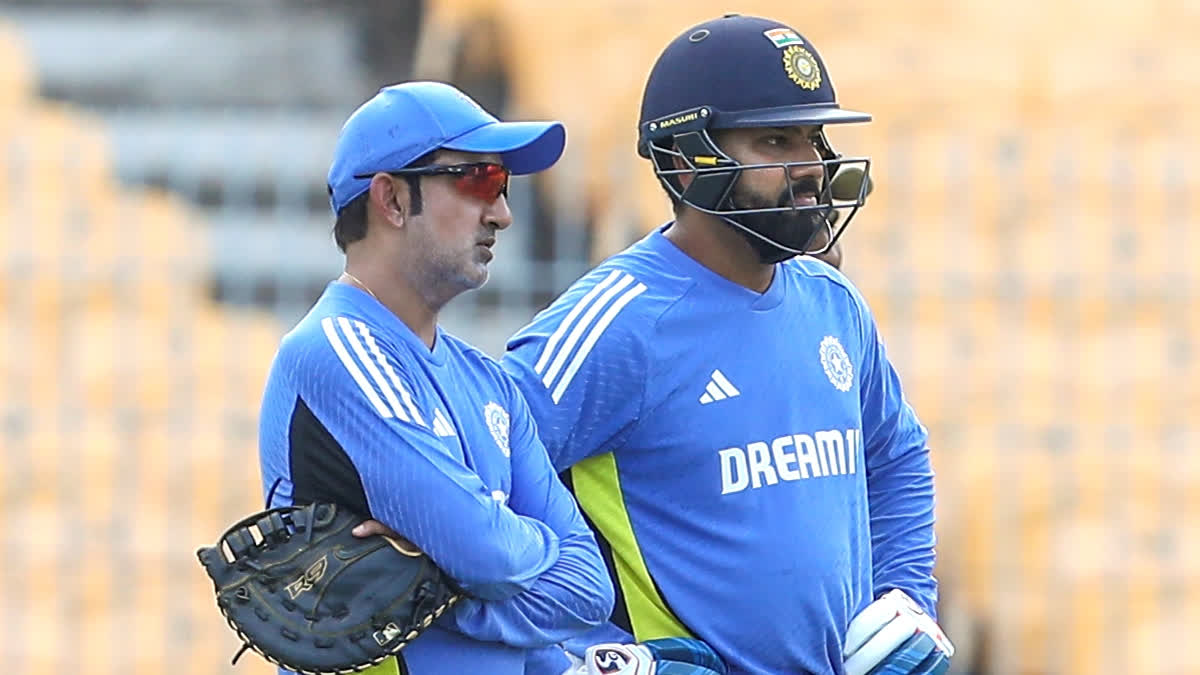Chennai (Tamil Nadu): Ahead of the India-Bangladesh Test series, Gautam Gambhir, Head Coach of Team India shared insights in an interview on JioCinema. Gambhir discussed his transition from captain to mentor and then to head coach, highlighted the importance of red-ball cricket, elaborated on his relationships with senior and emerging players, and shared his vision and approach for the Indian team going forward.
The 42-year-old also shared his perspective on Virat Kohli's return to red-ball cricket and discussed whether Kohli might need any advice.
"The most important thing is Virat’s ongoing hunger to be the best in the world. His training regimen, both in the nets and the gym, reflects that. And I know that once he gets into that frame of mind and into that groove, you know what he can do, what he's done for so many years. His preparation for the Bangladesh series and his anticipation for the Australia tour are crucial. Virat, Ashwin, and Jadeja still have the hunger to excel, which is vital for Indian cricket. Their continued drive to be the best sets an excellent example for the next generation," he said.
The former southpaw batter further spoke about his transition from captain, mentor and then to head coach. "These are early days. I was part of the IPL for the last three years, twice with Lucknow and once with KKR, in the capacity of a mentor. Taking over as head coach of the Indian team is a completely different challenge. I’ve never been a head coach before, but having experienced players like Rohit, Virat, Ashwin, Bumrah, and Jadeja can make things easier. Still, there’s always pressure. In the IPL, you’re judged for just two months a year, but as the head coach of the national team, especially a team like India, you’re judged every day. I’m aware of the pressure, but it’s also a great honour. After doing the IPL, I wanted to challenge myself further. Facing new challenges is what drives me, and that’s why I decided to take on this role."
The left-hand batter gave his take on Rohit Sharma as a leader and captain. "We’ve had several conversations. I believe that the team ultimately belongs to the captain because he leads on the field. My role, along with the support staff, is to assist the captain in every way possible. There will be disagreements, but the final decision rests with the captain. Rohit’s leadership and respect in the dressing room are crucial. So, he's a great guy and has got a lot of respect in that dressing room and that is the first and foremost quality of a leader. I think my relationship with him when we were playing together was fabulous. Even then he was a great human being and hopefully, I think it continues that way as well."
He spoke about the selection proceedings of the playing eleven and the importance of clear communication: “It will always be a challenge due to the immense talent available. Selecting just eleven players means others have to wait for their opportunity. Instead of viewing it as dropping players, it’s about selecting those who can best serve the team’s needs. Clear and straightforward communication will be key and the coach, captain, and chairman selector must be on the same page to avoid mixed messages. Understanding the vulnerability of players who are left out or dropped, we aim to provide the right support and communication to help them through the process."



